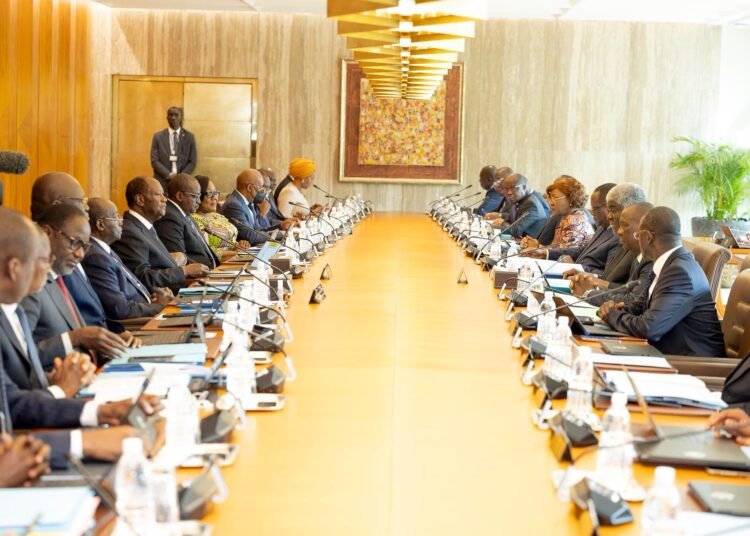Côte d’Ivoire’s Council of Ministers has approved four ambitious decrees paving the way for the construction and operation of solar power plants boasting a combined capacity of 210.3 megawatts-peak (MWp).
The projects, spanning the northern regions of Bafing, Gontougo, and Poro, represent a pivotal investment in diversifying the nation’s energy mix and positioning the West African powerhouse as a continental energy hub.
The initiatives include the 50 MWp Amea Power plant in Bondoukou (Gontougo region), the 58.6 MW Scaling Solar facility in Touba (Bafing), the 52 MWp Tongon Solar project in Tongon (Poro), and the 49.7 MWp Scaling Solar Laboa plant in Laboa (Bafing).
These agreements, forged through public-private partnerships, will be financed, built, owned, operated, and maintained by independent power producers, injecting clean energy into the grid to meet surging electricity demands.
Government spokesperson Amadou Coulibaly, who briefed the press on the decisions, hailed the move as a cornerstone of Côte d’Ivoire’s strategy to harness private sector expertise in the electricity sector.
“These conventions were concluded under our policy to promote private operators’ participation in developing independent power generation projects, directly addressing the growing energy needs of our population,” Coulibaly stated, emphasizing the nation’s unwavering commitment to an energy transition.
ALSO READ: KENYA: MUDAVADI URGES NEW ENVOYS TO CHAMPION INTEGRITY, TRADE DIPLOMACY
With Côte d’Ivoire’s current installed capacity hovering around 2,907 MW—primarily from hydroelectric sources—these solar additions align with ambitious targets to reach 3,500 MW by year’s end, scaling up to 5,200 MW by 2030 and 8,600 MW by 2040.
Coulibaly underscored the solar push as a deliberate pivot toward renewables, noting, “Aspiring to be an energy hub, Côte d’Ivoire is resolutely committed to the energy mix, diversifying production sources with a strong focus on renewables to ensure sustainable, reliable power for all.”
Industry observers view the approvals as a timely accelerator for the country’s green ambitions, especially amid global calls for climate action and regional electrification goals under the African Union’s Agenda 2063.
Construction timelines, expected to kick off in early 2026, promise to generate jobs, bolster local supply chains, and reduce reliance on fossil fuels, all while powering homes and industries in underserved northern corridors. As the sun rises on these projects, Côte d’Ivoire edges closer to a brighter, more electrified future.






























































